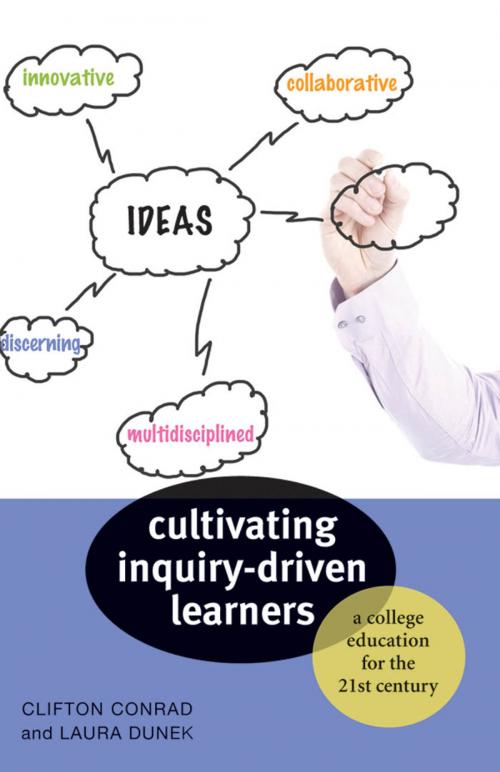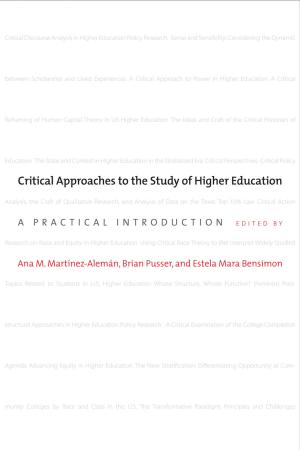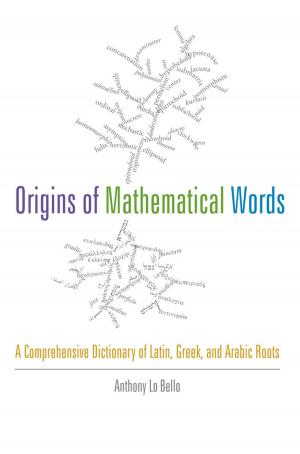Cultivating Inquiry-Driven Learners
A College Education for the Twenty-First Century
Nonfiction, Reference & Language, Education & Teaching, Educational Theory, Aims & Objectives, Higher Education| Author: | Clifton Conrad, Laura Dunek | ISBN: | 9781421406367 |
| Publisher: | Johns Hopkins University Press | Publication: | August 1, 2012 |
| Imprint: | Language: | English |
| Author: | Clifton Conrad, Laura Dunek |
| ISBN: | 9781421406367 |
| Publisher: | Johns Hopkins University Press |
| Publication: | August 1, 2012 |
| Imprint: | |
| Language: | English |
Inquiry-driven learners anticipate, embrace, and adapt to disruptive change. Clifton Conrad and Laura Dunek advance a transformative purpose of a college education. They invite stakeholders from across higher education to engage in vigorous dialogue about the aims of a college education—and how to realize those aims.
Increasingly influenced by market forces, many universities employ a default purpose of a college education: preparing students for entry into the workforce. As a result, students remain unprepared for a world in which much of the knowledge they acquire will have a shelf life of only a few years.
Cultivating Inquiry-Driven Learners charts a new way forward. It proposes that a college education prepare students to be innovative and adaptable by developing four signature capabilities: core qualities of mind, critical thinking skills, expertise in divergent modes of inquiry, and the capacity to express and communicate ideas. In concert, these capabilities empower students to explore and foster ideas that will prepare them to successfully navigate constant change, capitalize on career opportunities, enrich their personal lives, and thoughtfully engage in public life.
This innovative book also explores a wide range of initiatives and practices for educating inquiry-driven learners. Examples illustrate possibilities for developing inquiry-driven learners across the curriculum and are drawn from institutions with remarkably different missions and identities—from research universities to liberal arts colleges.
Inquiry-driven learners anticipate, embrace, and adapt to disruptive change. Clifton Conrad and Laura Dunek advance a transformative purpose of a college education. They invite stakeholders from across higher education to engage in vigorous dialogue about the aims of a college education—and how to realize those aims.
Increasingly influenced by market forces, many universities employ a default purpose of a college education: preparing students for entry into the workforce. As a result, students remain unprepared for a world in which much of the knowledge they acquire will have a shelf life of only a few years.
Cultivating Inquiry-Driven Learners charts a new way forward. It proposes that a college education prepare students to be innovative and adaptable by developing four signature capabilities: core qualities of mind, critical thinking skills, expertise in divergent modes of inquiry, and the capacity to express and communicate ideas. In concert, these capabilities empower students to explore and foster ideas that will prepare them to successfully navigate constant change, capitalize on career opportunities, enrich their personal lives, and thoughtfully engage in public life.
This innovative book also explores a wide range of initiatives and practices for educating inquiry-driven learners. Examples illustrate possibilities for developing inquiry-driven learners across the curriculum and are drawn from institutions with remarkably different missions and identities—from research universities to liberal arts colleges.















